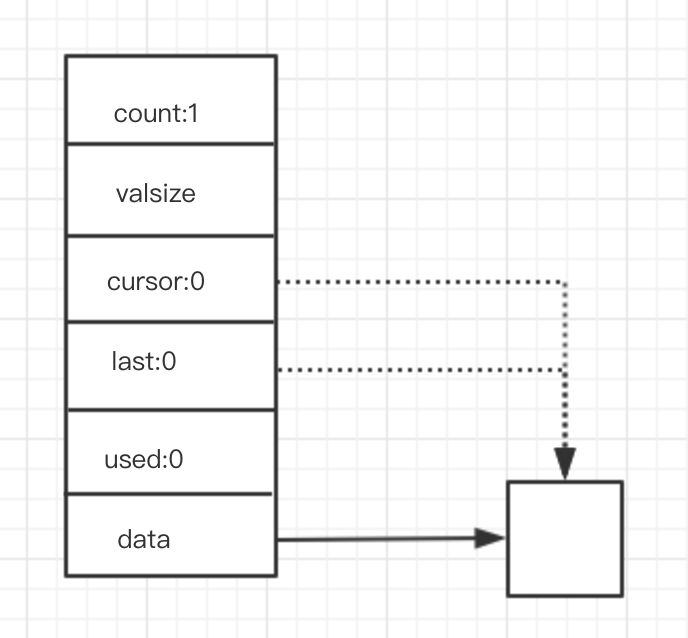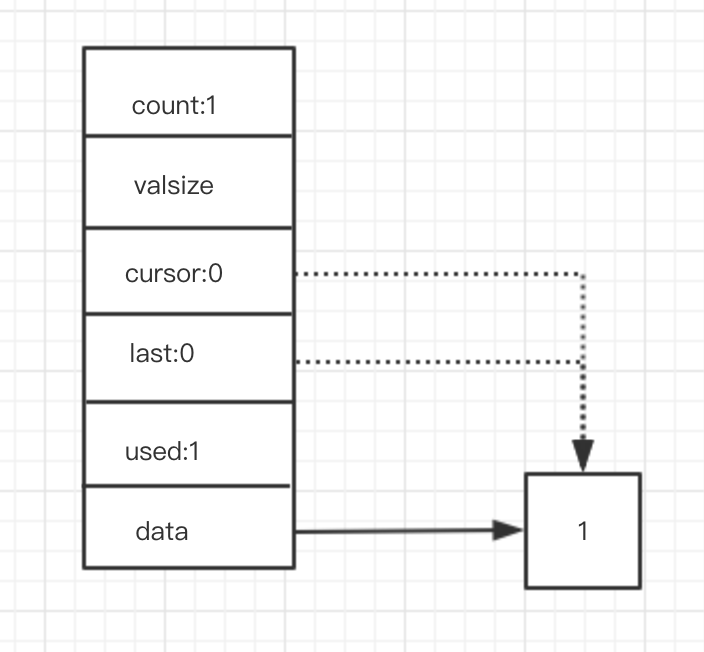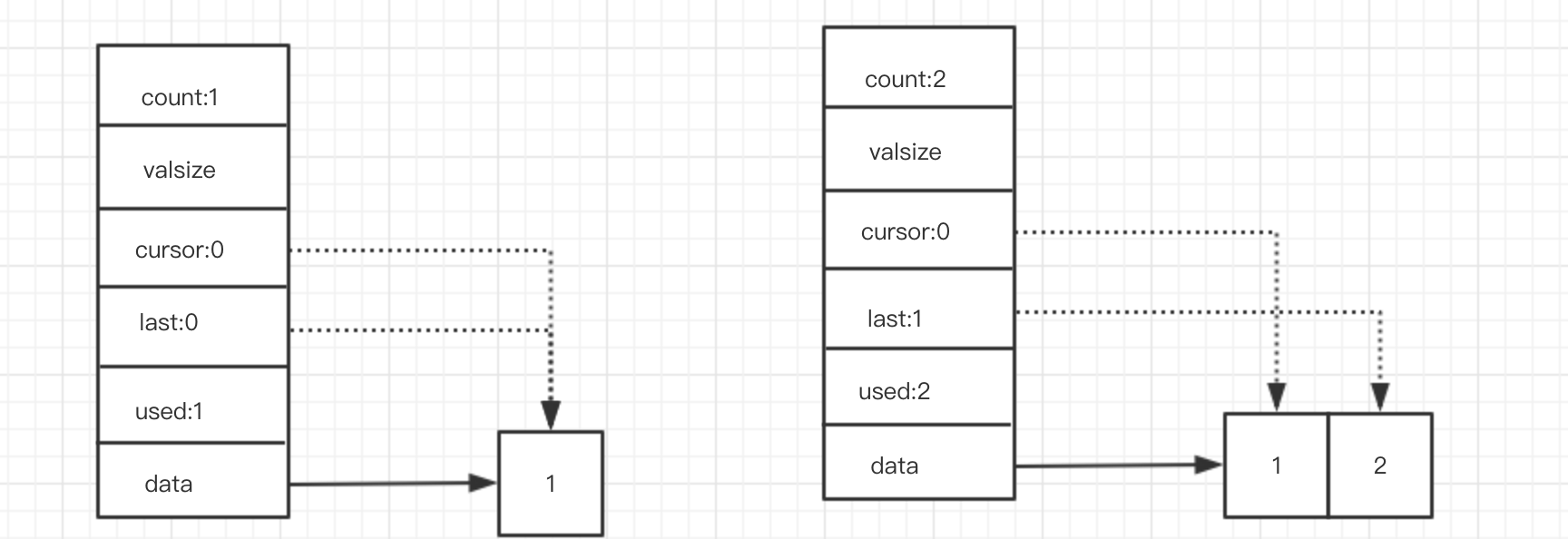一个c实现的channel
ICKelin opened this issue · 0 comments
ICKelin commented
最近看到一段用c实现的channel,感觉挺小巧精妙的,就好好研究了下。
包含两个基本操作:1、往channel发送数据;2、从channel中读取数据
本质上是用一段内存来实现一个环形队列。用两个游标来指向队头和队尾。每次要发送时,往队尾加数据,要读取时,从队头游标获取数据,当内存块不足时进行扩容,扩容机制采用的是原来内存块*2的方式。针对并发操作,用锁来保证同一时刻环形队列只有一个线程操作。
下面是具体代码,代码量很少。
channel.h:
定义基本数据结构以及接口
#ifndef _CHANNEL_H_
#define _CHANNEL_H_
#include "pv.h"
typedef struct
{
int count; // allocate count
int used; // used count
int cursor; // current position to rcv
int last; // current position to send
int valsize; // each element size
void *data; // data memory ptr
mutex_t lock; // mutex lock
} channel_t;
channel_t *new_chan(int valsize);
// send val to channel
// if channel is full, expand it, the expand strategy is old_size * 2
int chan_send(channel_t *chan, void *val);
// recv value from channel
// return !0 if channel empty
// otherwise return 0 and update the element params
int chan_rcv(channel_t *chan, void *ele);
// free queue data
// free channel
void free_chan(channel_t *chan);
#endif
channel.c:
接口实现
#include <stdlib.h>
#include <string.h>
#include "channel.h"
channel_t *new_chan(int valsize)
{
channel_t *ch = malloc(sizeof(channel_t));
if (!ch) {
return NULL;
}
ch->count = 1;
ch->valsize = valsize;
ch->cursor = 0;
ch->last = 0;
ch->used = 0;
ch->data = malloc(valsize);
mutex_init(ch->lock);
return ch;
}
// send val to channel
int chan_send(channel_t *chan, void *val)
{
if (!chan) {
return -1;
}
P(chan->lock);
if (chan->used == chan->count)
{
int old = chan->count;
int newcount = old * 2;
chan->data = realloc(chan->data, chan->valsize * newcount);
if (!chan->data)
{
V(chan->lock);
return -2;
}
// reconstruct queue
// supporse that the old channel is data[1,2,3,4,5]
// the cursor pointer is 3, the last pointer is 2.
// after expand, the channel is data[1,2,3,4,5,0,0,0,0...]
// it should be data[0,0,3,4,5,1,2,0,0,0...]
// the last pointer should be cursor + old_queue_size
memcpy(chan->data + old * chan->valsize, chan->data, chan->cursor * chan->valsize);
chan->count = newcount;
chan->last = chan->cursor + old;
}
memcpy(chan->data + chan->last * chan->valsize, val, chan->valsize);
chan->last = (chan->last + 1);
if (chan->last == chan->count)
chan->last = 0;
chan->used += 1;
V(chan->lock);
return 0;
}
// recv value from channel
int chan_rcv(channel_t *chan, void *ele)
{
P(chan->lock);
if (chan->used == 0)
{
V(chan->lock);
return -1;
}
memcpy(ele, chan->data + chan->cursor * chan->valsize, chan->valsize);
chan->used -= 1;
chan->cursor += 1;
if (chan->cursor == chan->count)
{ // cursor move the begin of the queue
chan->cursor = 0;
}
V(chan->lock);
return 0;
}
// free channel
void free_chan(channel_t *chan)
{
mutex_destroy(chan->lock);
free(chan->data);
free(chan);
}
pv.h:
锁操作的包裹函数
#ifndef _PV_H_
#define _PV_H_
#include <pthread.h>
#define mutex_t pthread_mutex_t
#define mutex_init(mu) pthread_mutex_init(&mu, NULL)
#define mutex_destroy(mu) pthread_mutex_destroy(&mu)
#define P(mu) pthread_mutex_lock(&mu)
#define V(mu) pthread_mutex_unlock(&mu)
#endif
接下来用图片显示具体每个操作之后内存状态。
接下来如果继续send,仅仅是重复上面两个过程,容量充足,则附加到last,不足,扩容再附加。
但是通常不会出现一直send的情况,会在send和rcv之间交替进行。
假设 send p1和send p2之后执行recv操作。
稍稍有点奇怪,但是也还算正常,这时候如果再 send p3, send p4。
这里挺巧妙的,需要琢磨一下,为了保证先进先出,需要将cursor之前的数据,也就是后进的数据移动到后面。代码当中也写了很长一段注释说明。
// reconstruct queue
// supporse that the old channel is data[1,2,3,4,5]
// the cursor pointer is 3, the last pointer is 2.
// after expand, the channel is data[1,2,3,4,5,0,0,0,0...]
// it should be data[0,0,3,4,5,1,2,0,0,0...]
// the last pointer should be cursor + old_queue_size
memcpy(chan->data + old * chan->valsize, chan->data, chan->cursor * chan->valsize);
chan->count = newcount;
chan->last = chan->cursor + old;
总的来说很小巧,不难,又有意思,适合无聊逛github的时候看看。




